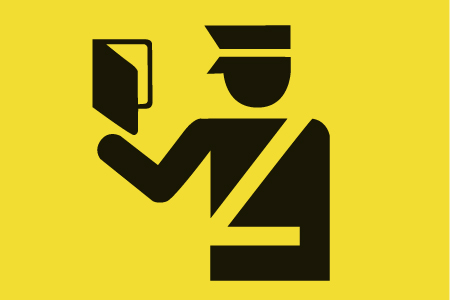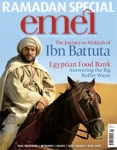
Questions of Colour
Issue 71 August 2010
Talk of immigration masks complex questions but politicians only ever give the same answer.
After a brief respite, it’s back. Immigration talk is on the rise in Western Europe: in the UK, it has returned due to a proposed cap on the number of immigrants entering the country; in the Netherlands, a high-profile anti-immigrant party pushed the topic high up the political agenda during the recent elections and made significant gains; and in France, pride at the ethnic composition of the national squad that won the World Cup twelve years ago has given way to sniping (with barely disguised racial undertones) due to a dismal performance in this year’s tournament.
In each place, the discussion and the reasons for the complaints are different. But the answer from politicians is always the same.
Start in Britain, where the new Conservative-Liberal Democrat coalition has proposed a cap on migrants coming into the country each year. Note that the logic of limiting immigration is not unsound – Britain is a moderately-sized rich country, and both resources and space are at a premium – the trouble is the cap is no more than a stunt. It will barely affect the numbers coming in – the whole of the European Union is excluded from the cap, so any limit would only affect a few percentage points of those entering every year.
In any case, it doesn’t affect the concerns that most people have when they talk about immigration. It won’t change the perceived lack of integration among some minority groups in the UK. And it won’t stop new communities of people from Eastern Europe moving into areas of the country that have already limited resources. The difficulties that some communities and councils have had with new migrants, some of whom struggle with English, will remain untouched by the cap. These are complex questions, but the politicians can only give one answer, the same tough talk on immigration: “We’ll stop them coming in.”
Moving onto the Netherlands, where the anti-immigrant, anti-Muslim Freedom Party of Geert Wilders made significant gains in last month’s election. Wilders talked a lot about how Muslim immigrants were changing the nature of the country and responded with – again the same answer – that he would halt immigration from Muslim countries.
Yet this talk of restricting Muslim migrants is meaningless for most of those who support Geert Wilders’ way of thinking. Much of his support comes from regions where the number of immigrants is low - it is pointless to restrict immigration in these regions, because there isn’t much anyway. Rather, what his constituencies were railing against with their anger at immigration was a perception that their faith (many are devout Christians) appears to be in decline while Islam is rising.
But it is hardly the fault of Muslims in one part of the country if Christians in another decide not to attend church. The questions that are being asked are about the loss of national identity in an increasingly secular society. Yet again, politicians have only one and the same answer.
And so to France, where the dismal performance of the national team at the World Cup sparked much soul-searching, with unattractive undertones: one French philosopher compared the team to youths rioting in ghettos and called them “a gang of hooligans that knows only the morals of the mafia”. He suggested these “thugs” ought to be replaced by “gentlemen”. To most of those listening, it was clear what he meant: many of the squad have African origins and the riots in the banlieues of Paris are still part of France’s collective memory.
Yet again, the answer to an immigration question was the same – restrict and replace. But not only is that answer worthless (the team was picked on merit, not on race), it doesn’t answer the question most French people have. The real question is why their team, with so many strong players, fell apart so comprehensively?
Many of the questions people have for their politicians about immigration are really about identity in a changing world. That the world is changing without their input is not something politicians can easily admit. Immigration is really a series of questions. Unfortunately, the answers politicians have - keeping them out or making them change – always seem to be the same.
Faisal al Yafai is a journalist. He received the Ibn Battuta Award for Media in London and is a Churchill Fellow for 2009/2010.
Bookmark this |
|
Add to DIGG |
|
Add to del.icio.us |
|
Stumble this |
|
Share on Facebook |
|
Share this |
|
Send to a Friend |
|
Link to this |
|
Printer Friendly |
|
Print in plain text |
|


Comments
0 Comments